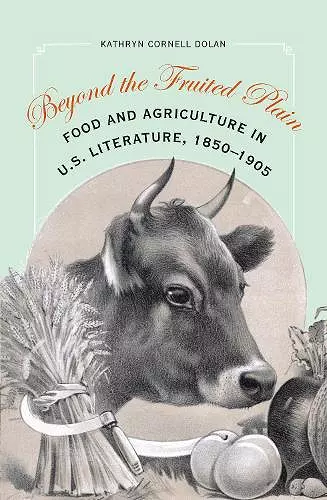Beyond the Fruited Plain
Food and Agriculture in U.S. Literature, 1850-1905
Format:Hardback
Publisher:University of Nebraska Press
Published:1st Dec '14
Currently unavailable, and unfortunately no date known when it will be back

Agriculture in the United States has changed dramatically in the last two hundred years. Economic transformation marked by the expansion of the industrial economy and big business has contributed to an increase in industrial food production. Amid this change, policymakers and cultural critics have debated the best way to produce food and wealth for an expanding population with imperialistic tendencies.
In a sweeping overview, Beyond the Fruited Plain traces the connections between nineteenth-century literature, agriculture, and U.S. territorial and economic expansion. Bringing together theories of globalization and ecocriticism, Kathryn Cornell Dolan offers new readings on the texts of such literary figures as Herman Melville, Frank Norris, Mark Twain, Henry David Thoreau, and Harriet Beecher Stowe as they examine conflicts of food, labor, class, race, gender, and time—issues still influencing U.S. food politics today. Beyond the Fruited Plain shows how these authors use their literature to imagine agricultural alternatives to national practices and in so doing prefigure twenty-first-century concerns about globalization, resource depletion, food security, and the relation of industrial agriculture to pollution, disease, and climate change.
"This book is a valuable contribution to the growing conversation that examines literary handling of food and agriculture as a crucial junction of nature and culture."—Daniel Clausen, Western American Literature
"Dolan's book is a solid and engaging study of nineteenth-century cultural criticism of agriculture and foodways that should find a ready audience."—Drew Swanson, Studies in American Naturalism
“Beyond the Fruited Plain poses a terrifically useful expansion of our understanding of how food-related discourse in the period was incorporated by literary artists, as well as how those artists turned their craft to the purpose of advocating for alternatives.”—Nicolas S. Witschi, coeditor of Dirty Words in Deadwood: Literature and the Postwestern
ISBN: 9780803249882
Dimensions: unknown
Weight: unknown
288 pages